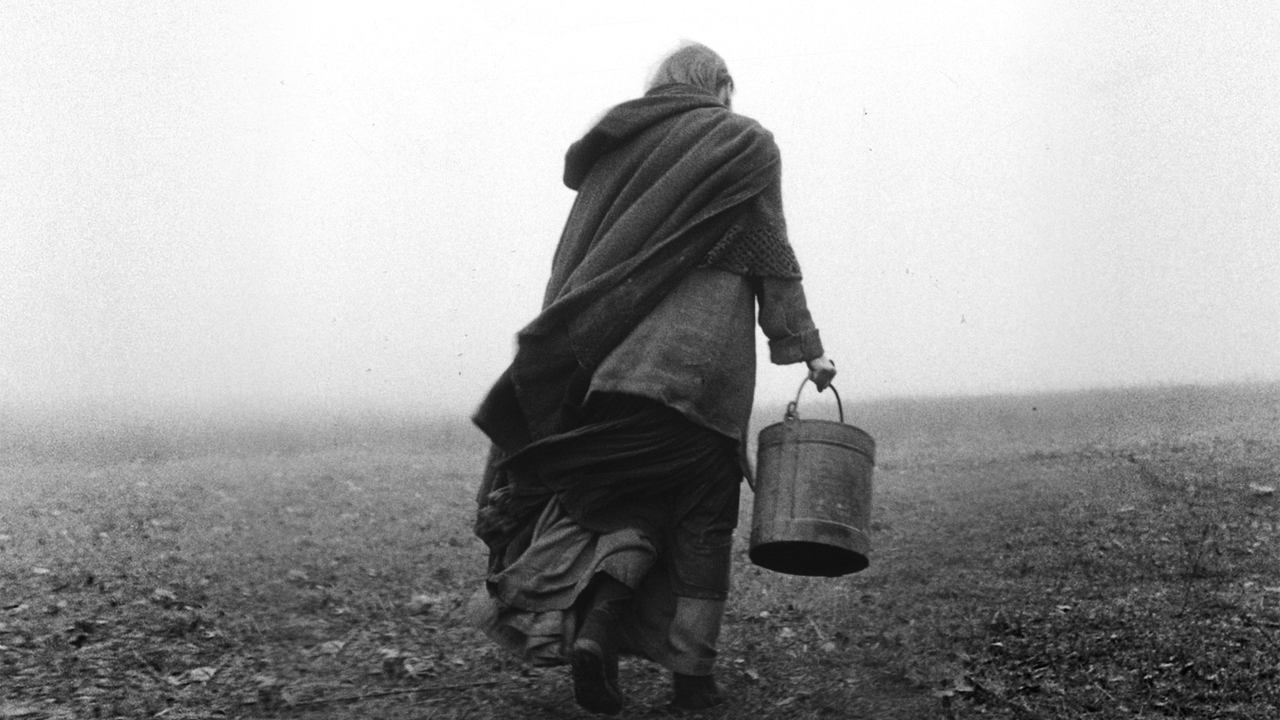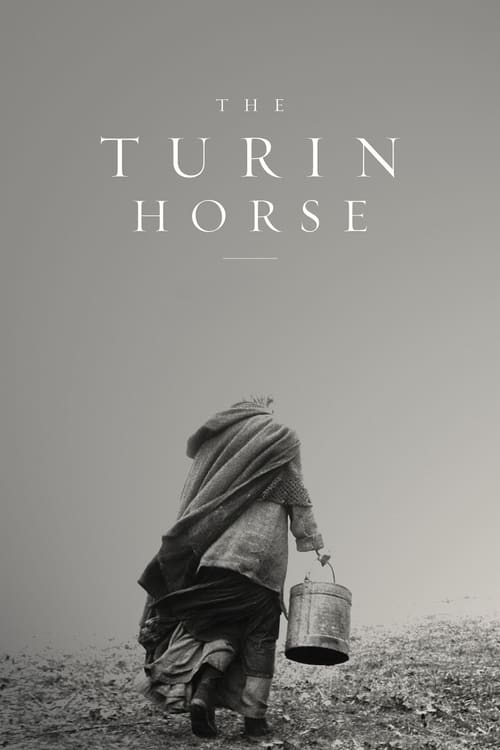
 The Turin Horse
The Turin Horse
The Turin Horse

A monumental windstorm and an abused horse's refusal to work or eat signal the beginning of the end for a poor farmer and his daughter.

 The Turin Horse
The Turin Horse

A monumental windstorm and an abused horse's refusal to work or eat signal the beginning of the end for a poor farmer and his daughter.
The work stems from a supposed story about Friedrich Nietzsche's mental breakdown in Turin. The film offers an experience of absurd immersion, where the characters are intimate, portrayed in long scenes without cuts, presenting a natural dynamic that drives this minimalist and impactful narrative. The cinematography is beautiful and melancholic, using black and white images that convey a sense of desolation. The setting reinforces the impression of isolation, degradation and sadness that permeates the entire film. The soundtrack, orchestrated in a funereal tone, complements the incessant wind that echoes throughout the film. It is an extremely depressing and pessimistic journey, a metalinguistic horror in which existence is revealed as a void, becoming a hopeless burden until the inevitable end.
I just got lost in this film. In a good way. Utterly transfixed by the 2 family members struggling to survive in a shack while a gale blows outside. It's mesmerizingly beautiful and minimal, just like other Tarr films I've seen. It's a very pessimistic film - most things in it refuse to work or live at some point (probably not a coincidence seeing as Tarr said this would be his final film). And the opening words state that Nietzsche's mind effectively refused to work after seeing a horse being flogged in the streets of Turin.
Some may wonder why anyone would sit through nearly 3 hours of slow zooms, pans and leaves blowing, and barely a plot. Some may even call this type of cinema pretentious - but that is Tarr's philosophical nature. The answer is because it's pure cinema. Pure austere, unforgiving visual poetry. Like Tarkovsky and others that came before it, it is the art of film-making shoved in our faces.
Ah, yes, the one in which every scene is at least 15 seconds longer than it needed to be.
Literally goes nowhere. I'd like my 2 hours of life back
My life is over and I need at least 5 words
The work stems from a supposed story about Friedrich Nietzsche's mental breakdown in Turin. The film offers an experience of absurd immersion, where the characters are intimate, portrayed in long scenes without cuts, presenting a natural dynamic that drives this minimalist and impactful narrative. The cinematography is beautiful and melancholic, using black and white images that convey a sense of desolation. The setting reinforces the impression of isolation, degradation and sadness that permeates the entire film. The soundtrack, orchestrated in a funereal tone, complements the incessant wind that echoes throughout the film. It is an extremely depressing and pessimistic journey, a metalinguistic horror in which existence is revealed as a void, becoming a hopeless burden until the inevitable end.